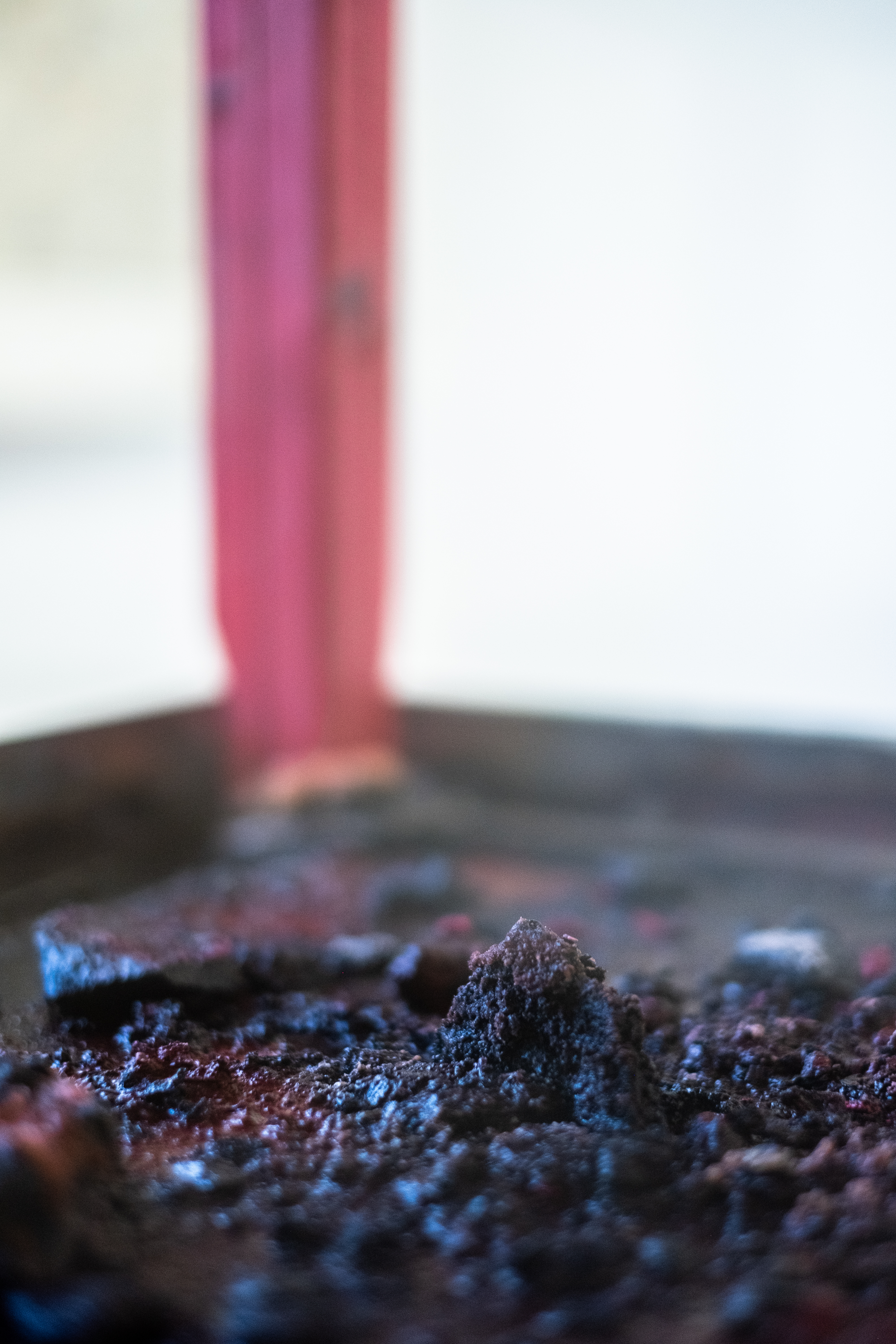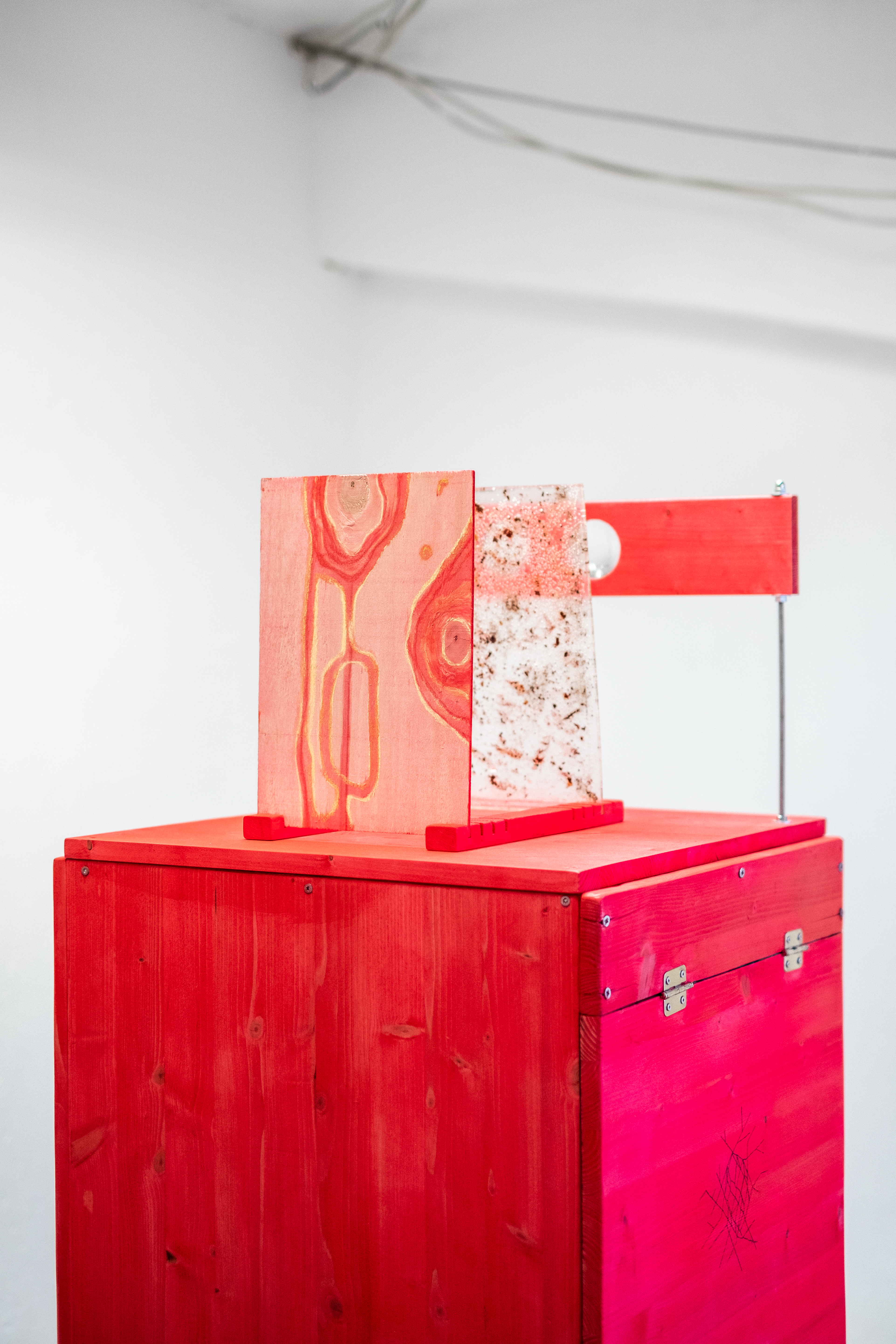
Which circumstances define an objects' year of origin, when its' anatomy and spirit is composed by an assemblage that merges past-present-future states – hence has always been and might always be in a state of becoming?
The main protagonist of the sculpture assemblage Pikaia's Ossature (2022 –ongoing) is a crystalline stone that acts as the artists collaborator.
It houses in a skeleton of wood, glass & metal that acts as a porous framework for the growth of the hybrid organism that unites more-than-human & human particles(*²).
The sculpture is inspired by the peep box, one of the first massmedia in Western history (that the artist got to study extensively in the Deutsches Optisches Museum archive in Jena) – the object circulated images of 'the world' and was gaining popularity in the 17th/18th century. Reflecting critically on the monopolistic aesthetic that such mass media began to reproduce, in Pikaia's Ossature the artist searches for a balance in which the central position that human being takes in the world, is shared with its more-than-human agents that co-define its presence.
*²A hybrid state of more-than-human and human agencies is considered here not as a modern, rather original state, that has been neglected as part of the dualistic, binary divisions by the Western world. Paying homage to 'the agency of nature', and to an author that has prominently advocated for it, namely Bruno Latour:
Here lies the entire modern paradox. If we consider hybrids, we are dealing only with mixtures of nature and culture; if we consider the work of purification, we confront a total separation between nature (science) and culture (politics).
The project was supported by Künstlerische Tatsachen residency in Jena, and has first been exhibited at Trafo, Jena (2022).
Photographer: Anna Perepechai (Künstlerische Tatsachen)




Installation views, Künstlerische Tatsachen, Jena, Photographer: Anna Perepechai
︎ You may scroll to view more works ︎
All images and texts © 2023 Studio Monika Dorniak
All rights reserved
All rights reserved